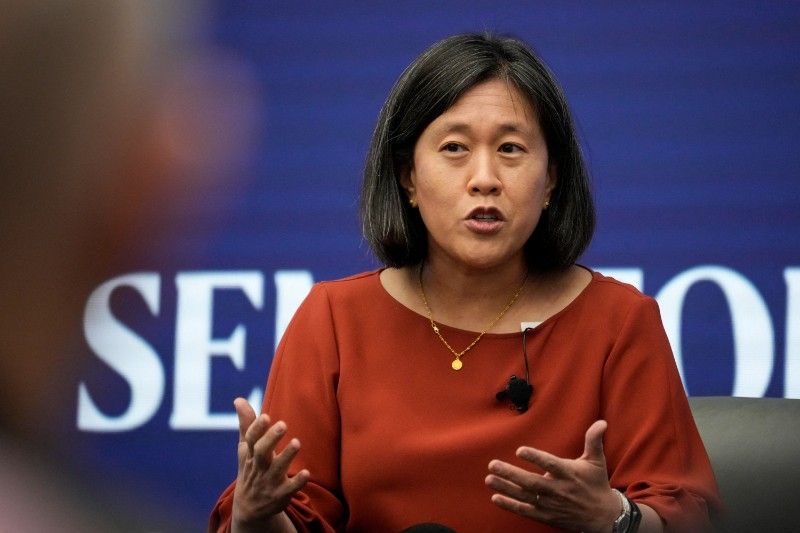US trade chief seeks more resilient supply chains

WASHINTON, United States — Global supply chains need to be redesigned, with a greater focus on raising standards and building resilience for the sake of economic security, US Trade Representative Katherine Tai said Thursday.
"Fragile supply chains and an unsustainable version of globalization" call for reform, and such challenges will have a bearing on trade policy, Tai said in a speech at the National Press Club.
President Joe Biden's administration has sought to move away from traditional trade deals. By focusing on efficiency and low costs, Tai added, those deals allowed significant content to come from countries that were not parties to the agreements.
This benefited "free riders, who have not signed up to any of the other obligations in the agreement, such as labor and environmental standards," Tais said.
She believes such practices bring advantages to countries that used "unfair competition to become production hubs."
"That is how the supply chain rules in these (Free Trade Agreements) tend to reinforce existing supply chains that are fragile and make us vulnerable," said Tai.
She also added that with a focus on efficiency and low cost, production moves outside America and becomes "increasingly consolidated in one economy," like China, which "manipulates cost structures" and controls key industries.
While the expectation was for a gradual rise in labor standards and environmental protection as countries gained wealth from more trade flows, there were no guardrails to ensure this. The system, Tai said, incentivized countries to compete by keeping lower standards.
In new trade engagements such as in the Indo-Pacific Economic Framework discussions, US officials are looking to focus more on workers, the environment and small businesses, she said, looking to standards that improve with time.
A redesign of supply chains means production can more easily bounce back from crises and disruptions, according to Tai.
"But getting there requires a fundamental shift. A shift in the way we incentivize decisions about what, where, and how we produce goods and supply services," she added.
"That shift, in trade as in antitrust, moves away from a narrow focus on benefits for consumers."
- Latest
- Trending




























